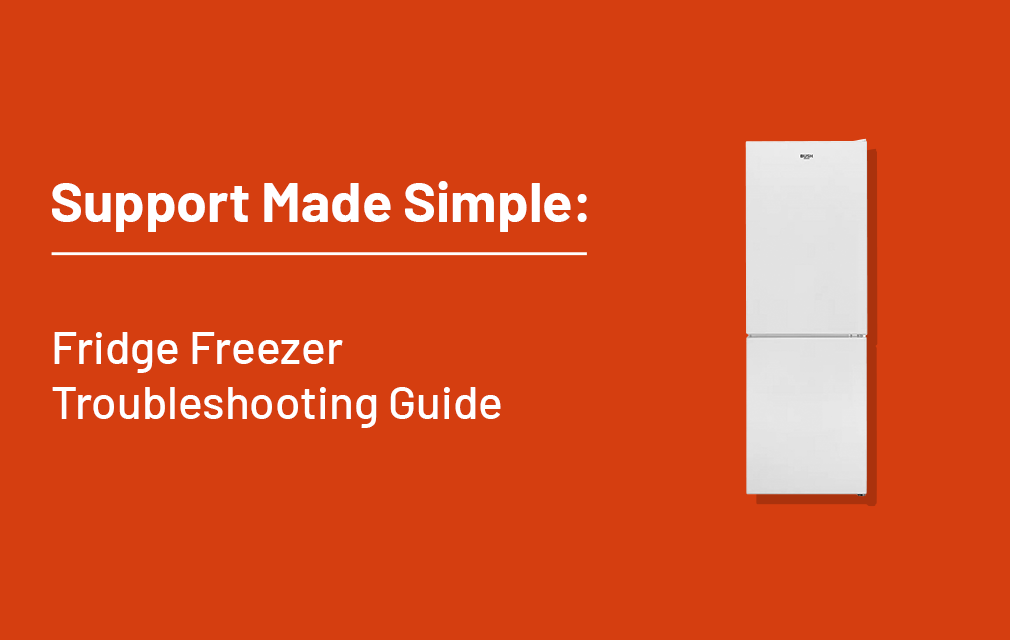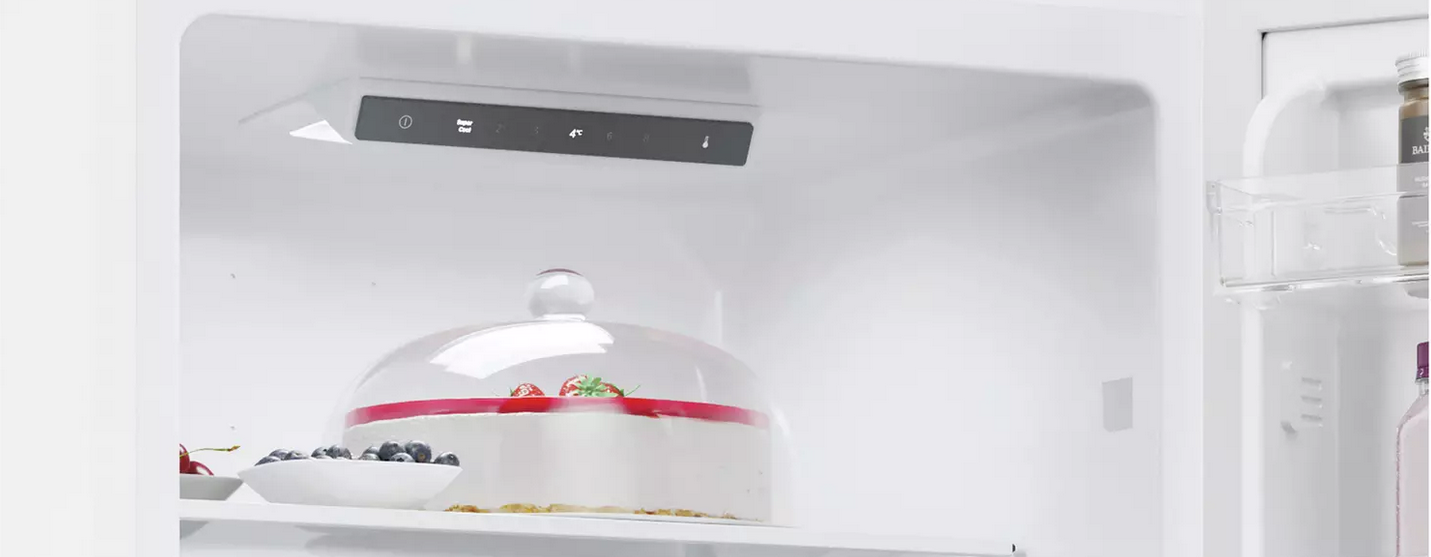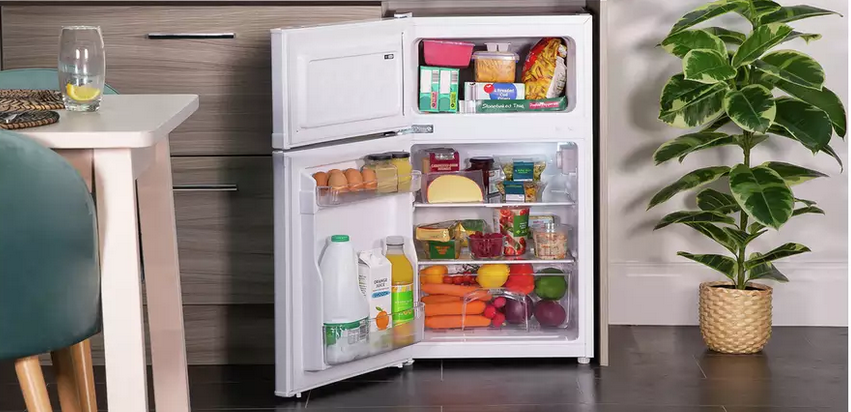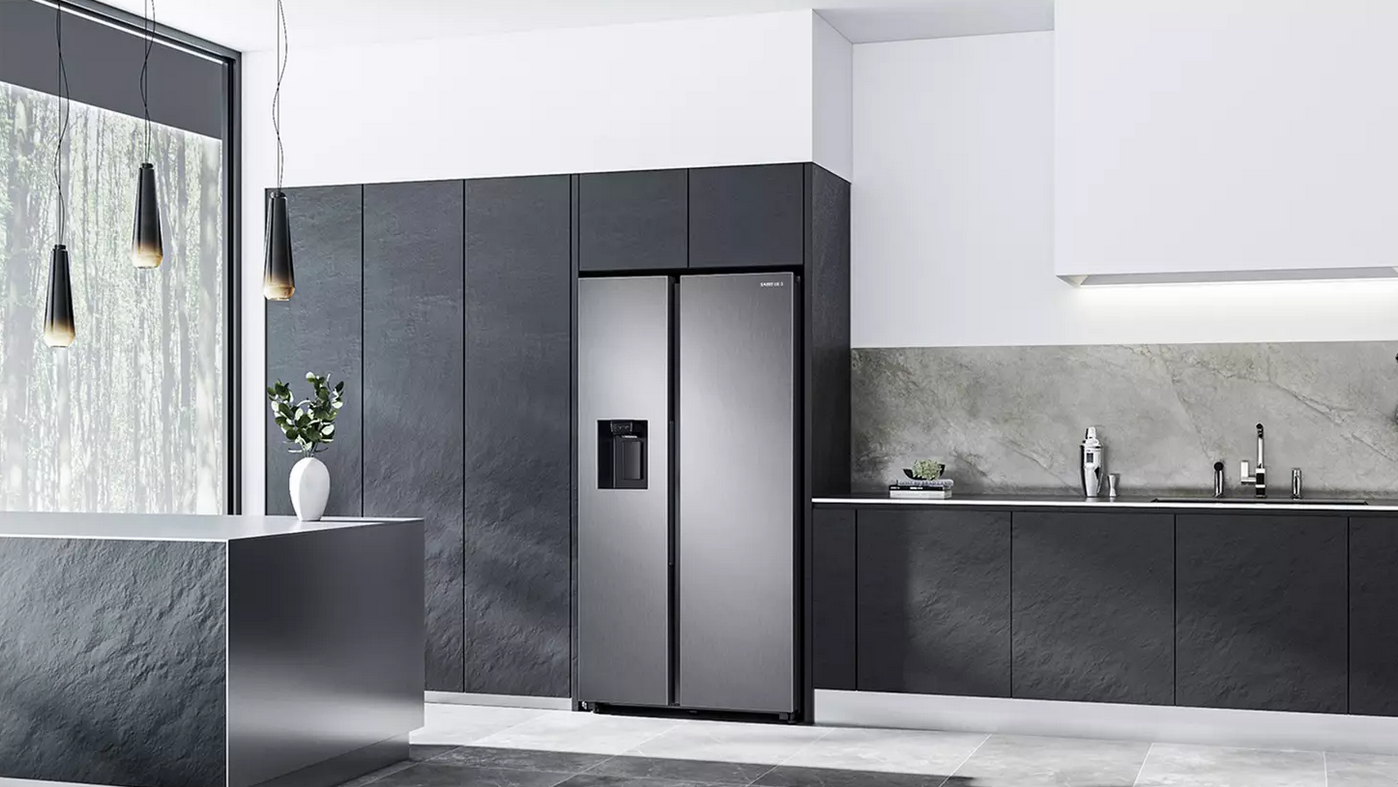
Fridge freezers are essential for the modern kitchen. If things go wrong, we need to quickly look for a solution as we rely on these appliances to keep our food cool. In this guide, we have highlighted common queries and solutions for fridge freezers.
There is ice build-up in the fridge section.
If the fridge section is icing up, the first thing to check is the setting. You may find that the chosen setting is too high for the room temperature the fridge is located in. Try turning it down to a lower setting and monitoring the appliance.
It is also important to check if your appliance is considered ‘frost-free’ or ‘wet wall’. This type of refrigeration means that water droplets will trickle down the back of the wall into the drainage hole into the evaporation tray. If the door is opening a lot, you may notice these droplets. This is nothing to worry about and is a sign that the cooling system is working.

The freezer section is freezing too much.
Whilst we want the freezer section to be cold to keep things frozen, we do not want this section to be freezing excessively. If you notice this, we recommend checking that it has not been overfilled. This means ensuring that the items inside are not touching the walls of the appliance.
It is also worth checking the door seals themselves to ensure the door is closing properly. If there is a gap in the seal on the freezer section, this will affect the performance of the appliance as it may struggle to maintain the correct temperature due to a change in airflow. As a result, it may work harder and thus excessively freeze this section.
Both areas are not cooling.
The fridge section should remain cold enough to keep items cool, whilst the freezer section is cold enough to keep things frozen. If both sections aren’t cooling, then this can be problematic for all the items stored inside.
We would recommend checking that the correct clearance has been followed. This will be outlined in the user manual which should show the spacing to have each side of the appliance. This allows ventilation which helps the appliance to perform effectively. It’s also recommended to check that the appliance is not too close to heat sources. This means that you should move away from items - such as radiators - and monitor the performance.

There is a smell coming from the appliance.
Smells from your fridge freezer can be off-putting, especially when opening the appliance to get food. The smells are usually a result of food or food debris. Check the appliance for any out of date foods and remove these. If the smell lingers, it may be time to completely clean. Unplug and defrost if necessary, and use a clean cloth to wipe down the surfaces. You can even pop a lemon instead your appliance to help remove any odours.
The drainage hole is blocked.
If your fridge has a drainage hole that drains the water down to an evaporation tray, you will find you’ll need to keep this maintained over time. For blockages, we recommend using a small brush, which is usually included with the appliance, to clean the drainage hole of any blockage/debris. Once removed, pour water down the hole and then check the tray at the back to ensure the water is dripping through.
The water dispenser is not being released/the water dispenser is leaking.
Most modern-style fridge freezers come with in-built water dispensers. These are perfect for a cold refreshing drink. If you find the dispenser to be leaking or not dispensing water at all, we recommend wiggling the lever to ensure it has not got stuck.
If still not rectified, it is best to remove the dispenser from the unit (if it is removable) and check the seals for any gaps or damage which could be causing the issue. Once checked over, simply put the dispenser back in and try again.
The compressor is loud.
The compressor sound for most fridge freezers will be a humming noise every now and again. This happens when the appliance is maintaining the correct temperature and is completely normal. If you think it may be louder than expected, we recommend checking that there is enough clearance around the appliance for sufficient air flow. If this is restricted, you may find the noise to be louder as the fridge will be working harder to maintain the temperature.

Have any more questions? Don’t worry, you can visit the Argos Support Site and search your catalogue number to find more guidance for your specific model.
For more articles on fridge freezers, see below: